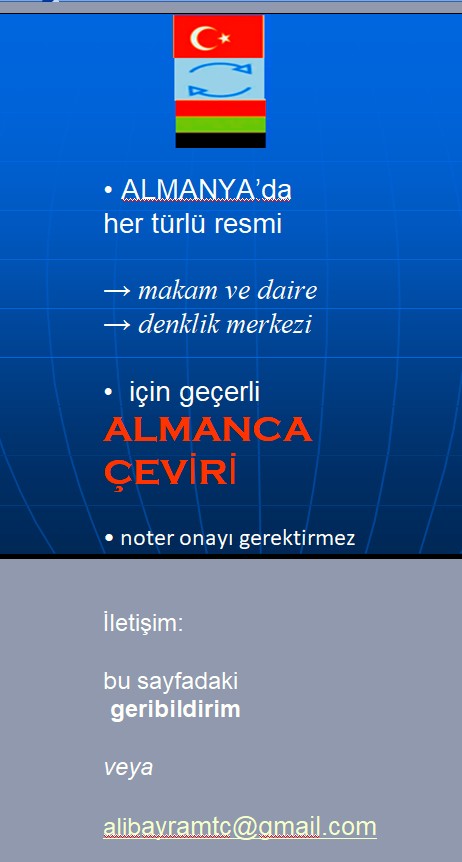meteorologic
İngilizce - Türkçe
sıfat / adjective – physical geography
METEOROLOGIC = of or about meteorology, the scientific study of the Earth's atmosphere, including the analysis and forecasting of weather patterns and other atmospheric phenomena. Thus, "meteorologic" is often used to describe things that are related to or influenced by weather patterns or atmospheric conditions, such as "meteorologic data," "meteorologic conditions," "meteorologic events," etc. It can also be used to describe the methods, tools, or techniques used in meteorology, such as "meteorologic measurements," "meteorologic models," "meteorologic instruments," and so on.
meteorologic
Meteorologic data: Information or statistics related to weather patterns, conditions, or phenomena.
Meteorologic conditions: The prevailing atmospheric circumstances or factors affecting the weather at a specific time or place.
Meteorologic events: Specific occurrences or incidents related to atmospheric phenomena.
Meteorologic forecasting: The process of predicting future weather conditions based on meteorological data.
Meteorologic models: Mathematical or computational representations used to simulate atmospheric processes and predict weather.
Meteorologic instruments: Tools or devices designed to measure and record atmospheric variables like temperature, pressure, and humidity.
Meteorologic patterns: Recognizable sequences or trends in atmospheric conditions over time.
Meteorologic satellite: A spacecraft designed to observe and collect data on Earth's atmosphere and weather systems.
Meteorologic station: A location equipped with instruments for observing and recording atmospheric conditions.
Meteorologic phenomenon: An observable event or occurrence related to the atmosphere, such as a storm or tornado.
Meteorologic research: Scientific investigation into atmospheric processes, patterns, and phenomena.
Meteorologic variables: Factors or elements that can change and influence weather conditions, such as temperature and wind speed.
Meteorologic analysis: The study and examination of meteorological data to understand past or current weather conditions.
Meteorologic observations: Recorded data or notes regarding specific atmospheric conditions at a particular time and place.
Meteorologic disturbances: Abnormal or disruptive changes in atmospheric conditions, often leading to severe weather events.
Meteorologic phenomena: Natural occurrences or events in the atmosphere, such as lightning or fog.
Meteorologic systems: Organized patterns or structures within the atmosphere, like high and low-pressure systems.
Meteorologic parameters: Specific measures or indicators used to describe atmospheric conditions, such as humidity levels.
Meteorologic trends: Long-term changes or shifts in atmospheric conditions or patterns over extended periods.
Meteorologic observations: Recorded data or notes about atmospheric conditions made through various instruments or methods.
Meteorologic anomalies: Unusual or unexpected atmospheric conditions or events that deviate from the norm.
Meteorologic phenomena: Observable events or occurrences related to the Earth's atmosphere, such as rainbows or auroras.
Meteorologic systems: Complex atmospheric structures or formations, such as cyclones or anticyclones.
Meteorologic monitoring: Continuous surveillance or tracking of atmospheric conditions using various instruments or techniques.
Meteorologic variables: Elements or factors within the atmosphere that can change, such as air pressure or temperature.
Meteorologic data analysis: Examination and interpretation of collected atmospheric data to derive meaningful insights or conclusions.
Meteorologic predictions: Forecasts or projections regarding future weather conditions based on current atmospheric data.
Meteorologic research: Investigation and study of atmospheric processes, phenomena, and patterns using scientific methods.
Meteorologic observations: Recorded information or data regarding specific atmospheric conditions at particular locations and times.
Meteorologic phenomena: Natural events or occurrences in the atmosphere, such as thunderstorms or hurricanes.
Meteorologic parameters: Measurable factors or variables used to describe and analyze atmospheric conditions, such as wind speed or precipitation levels.
Meteorologic patterns: Recognizable sequences or trends in weather conditions observed over specific periods.
Meteorologic disturbances: Disruptions or changes in atmospheric conditions that can lead to severe weather events like storms or floods.
Meteorologic instruments: Devices or tools designed to measure, record, and analyze various atmospheric variables or phenomena.
Meteorologic data collection: Gathering and compiling information or statistics related to atmospheric conditions using specialized methods or instruments.
Meteorologic phenomena: Observable events or occurrences associated with the Earth's atmosphere, such as cloud formations or atmospheric pressure changes.
Meteorologic forecasting: Predicting future weather conditions or patterns based on analysis of meteorological data and models.
Meteorologic monitoring: Continuous surveillance or observation of atmospheric conditions using various instruments, techniques, or systems.
Meteorologic research: Scientific investigation into atmospheric processes, phenomena, and interactions to enhance understanding and prediction capabilities.
Meteorologic observations: Systematic recording and documentation of specific atmospheric conditions or events at designated locations and times.
Meteorologic parameters: Quantifiable factors or variables within the atmosphere that influence weather patterns and conditions, such as temperature, humidity, and pressure.
Meteorologic phenomena: Natural events or phenomena occurring within the Earth's atmosphere, such as precipitation, lightning, or fog.
Meteorologic disturbances: Sudden or significant changes in atmospheric conditions that can result in adverse weather events or phenomena.
Meteorologic instruments: Specialized tools or devices utilized to measure, monitor, and analyze various atmospheric variables, parameters, or phenomena.
Meteorologic forecasting: The process of predicting future weather conditions or patterns based on the analysis of historical data, current observations, and meteorological models.
Meteorologic research: The systematic study and investigation of atmospheric processes, phenomena, interactions, and patterns to advance scientific understanding and prediction capabilities.
Meteorologic observations: The collection, recording, and analysis of specific atmospheric data or information at designated locations and times using various instruments, methods, or techniques.
Meteorologic parameters: Key factors or variables within the atmosphere that are measured, analyzed, and monitored to understand and predict weather patterns, conditions, and phenomena.
Meteorologic phenomena: Observable events, occurrences, or phenomena associated with the Earth's atmosphere, such as atmospheric pressure changes, cloud formations, or wind patterns.
Meteorologic disturbances: Disruptions, changes, or anomalies in atmospheric conditions that can lead to severe weather events, phenomena, or disturbances, such as storms, hurricanes, or tornadoes.


